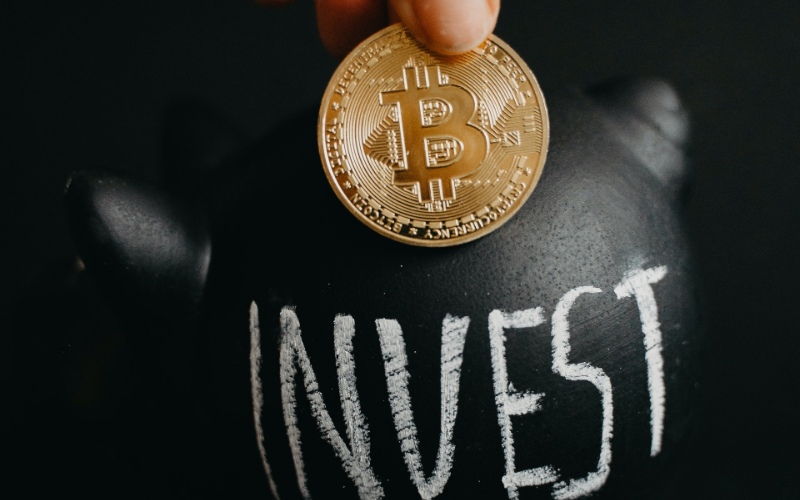
In April 2021, ABC News talked with financial analyst Martin North, who said, “banking responsibility when it comes to crypto scams can be a gray area.” He had his reasons for making this statement, such as banks having no legal obligation to intervene in these matters.
Crypto or cryptocurrency scams are not a new phenomenon; however, they are rapidly growing. According to the Federal Trade Commission (FTC), 7,000 cases of crypto scams were reported between October 2020 and April 2021, and the total loss was approximately $80 million. This currency is similar to the paper-based money we are used to; however, all transactions are conducted online. You might have heard of Bitcoin and how more and more people, including billionaires, are investing in it; however, everything has risks. Scammers are aware of the popularity of cryptocurrency; hence, they are finding new ways to steal money from investors.
Top 5 Crypto Scams in 2022
1. Phishing
Phishing involves scammers sending legitimate-looking emails or text messages to trick people into giving their personal information, such as name, address, or banking details. Similarly, the scammer will ask for information, such as passwords and “private keys”, needed to access cryptocurrency stored in online wallets. The email or message usually contains a link leading to a website where private information is requested from people and then stolen by scammers. Consequently, it leads to identity theft as the scammer can use your password to gain access to your funds, make transactions or even withdraw all the money.
2. Investment Opportunities
Beginner traders or investors looking to make big money fast may become victims of this scam. They trust websites with promises of guaranteed high returns on investment if the initial investment is immense. However, the website, scammer, and money disappear when the investor tries to withdraw their money.
3. Impersonation and Giveaways
Scammers may also pose as famous personalities, for example, from the business or film industry, with promises to increase the cryptocurrency sent to them by a certain amount. However, investors don’t receive their initial investment or return, making it a giveaway scam.
4. Romance
Scammers also use dating websites or apps to commit fraud. The scammers establish a long-term relationship with the victims and then offer cryptocurrency opportunities to them. As a result, the victim may unknowingly give their “private keys” or transfer some amount of their cryptocurrency to the scammer, thinking it is someone they are dating.

5. Pump and Dump
Some insiders who own assets in the digital market, for example, cryptocurrency, might be scammers. They “pump” or artificially inflate the asset’s price, much more than its actual value, by promising investors high returns on their investment. The scammer will “dump” or sell their shares of the asset at high prices when multiple investors begin rapidly buying those shares. As a result, scammers gain large amounts of money while investors are left with an asset with a low value.
Have you invested on crypto or bitcoin only to be scammed? Contact us to help you recover from a crypto scam!
Crypto Scams Worldwide
You would think that only individual investors who lacked sufficient knowledge about cryptocurrencies fell for such scams. However, that is not the case because large banks and companies have also fallen victim to crypto scams. Let’s look at some examples from around the world, what happened and how to deal with the scam.
1. Australia
Articles regarding a partnership between Australia’s largest bank, the Commonwealth Bank of Australia (CBA), and a cryptocurrency platform were published on the Australian Broadcasting Corporation’s (ABC) website. However, this news was fake because people were redirected to a scammer’s website from the ABC website. The website and advertisements on social media, like Facebook, mislead people into investing in cryptocurrency. Moreover, the scammer’s website included links where people could invest in cryptocurrency; however, people were unaware that they would lose their money this way. CBA requested social media platforms to take down the advertisements regarding this fake news and filed a legal complaint with authorities regarding the inability of social media platforms to respond to the issue. After this complaint by CBA, Meta was taken to court by the Australian Competition and Consumer Commission (ACCC), holding Facebook responsible for the propagation of fake news and misleading people.
In April 2021, ABC News talked with financial analyst Martin North, who said, “banking responsibility when it comes to crypto scams can be a gray area.” He had his reasons for making this statement, such as banks having no legal obligation to intervene in these matters. However, Australia’s biggest bank fell victim to a crypto news scam, and the bank’s clients suffered financially, not even a year later. Martin North had warned about banks not bailing you out if you lose your money to crypto scams; therefore, thorough research and thinking before investing is essential. Furthermore, he highlighted the rapidly increasing value of Bitcoin behind people hurriedly investing in cryptocurrency. However, it may lead them to fake websites promising risk-free and high returns in a short period. The end result would be people losing significant amounts of money. But the more concerning problem is that the digital market is not regulated by any government-like authority, making it difficult to track down scammers.

2. USA
The Securities and Exchange Commission (SEC) in the US froze assets of AriseBank. The bank claimed to be the first decentralized bank providing a platform for cryptocurrencies and created its own digital currency called AriseCoin. It used social media and celebrity endorsement for promotion and raised money by selling the digital currency. Moreover, it claimed to have raised $600 out of its goal of one billion dollars and purchased a federally insured US bank. However, AriseBank was making false claims and refused to disclose the criminal backgrounds of its key executives, making authorities more suspicious of its activities. Therefore, the SEC suspended the banks’ activities to prevent them from scamming potential investors.
3. Pakistan
Pakistan’s Federal Investigation Agency (FIA) investigated a multi-million dollar cryptocurrency scam in January 2022. It involved a popular cryptocurrency exchange, Binance Pakistan, and cryptocurrency investment mobile applications. In December 2021, multiple mobile applications, like MCX, FXCOPY, and TASKTOK, were reported by Pakistanis to be fraudulent and have lost billions of rupees. The investigation by FIA found the applications had urged people to transfer their money from their Binance crypto wallet to the mobile application. Once the apps gained multiple clients, the apps would crash, and all the money would be stolen by the owners of those apps.
Sources
- https://www.investopedia.com/articles/forex/042315/beware-these-five-bitcoin-scams.asp
- https://money.usnews.com/investing/cryptocurrency/articles/top-crypto-scams-to-watch
- https://beincrypto.com/australia-largest-bank-falls-victim-to-crypto-news-scam/
- https://www.abc.net.au/news/2021-04-22/cryptocurrency-scams-in-australia-warning-banks-/100087800
- https://economictimes.indiatimes.com/markets/cryptocurrency/pakistans-fia-issues-notice-to-cryptocurrency-exchange-while-investigating-multi-million-dollar-scam/articleshow/88786073.cms



